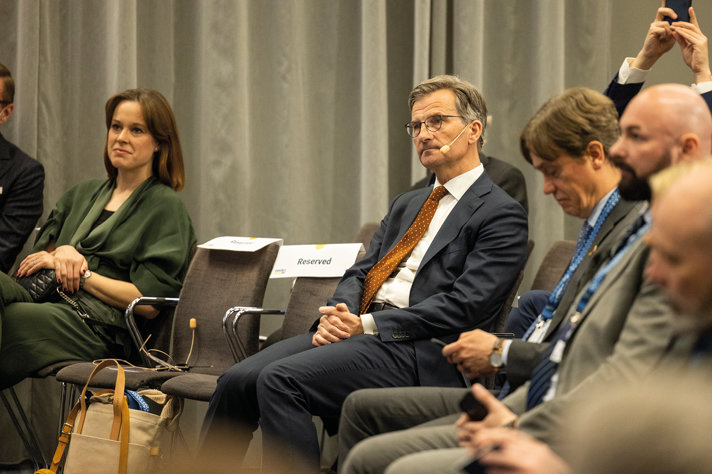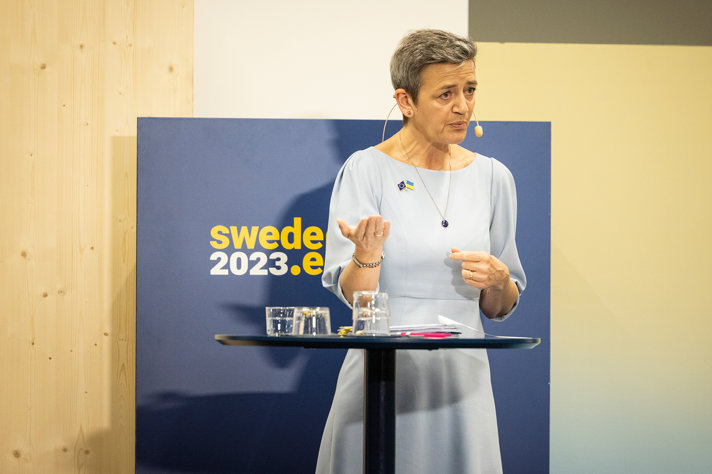Competition in times of crisis
Published
The importance of maintaining active competition enforcement with regard to markets and companies in times of crisis was a recurring message during the European Competition Day conference.
The theme of this year’s European Competition Day was competition in times of crisis. Margrethe Vestager, Executive Vice-President of the European Commission and Commissioner for Competition, stressed that it is particularly important in times of crisis that competition watchdog agencies maintain healthy competition – not least for the benefit of consumers. Swedish Competition Authority Director General Rikard Jermsten and State Secretary Sara Modig underscored this message.
In his speech, Governor of the Riksbank Erik Thedéen also emphasised the value of well-functioning markets and that protecting price stability is facilitated by safeguarding competition in both the short and long term.
Competition and inflation
The panel that discussed the link between competition and inflation agreed that high inflation affecting EU Member States in recent years is due to a supply shock. Competition authorities’ need for a new market research tool to increase the effectiveness of competition enforcement was another recurring topic of discussion. The consensus was that the current competition legislation needs to be supplemented by a tool similar to that available to the British competition authority and which will also be introduced in Germany, for example.
Dramatic electricity supply decrease in Europe
Energy prices were a central theme for the day’s second panel. The participants noted that electricity supply has decreased dramatically as a result of the war in Ukraine, prolonged drought and extensive closures of nuclear power plants. Despite this supply shock, markets have functioned well and rationing of electricity has been avoided, which the panel participants saw as evidence that the markets are working.
Green electricity – challenges and opportunities for the EU
The discussion also turned to the major challenges in efforts to provide Europe with green electricity, discussed in the day’s third and final panel on sustainability and the environment in competition enforcement. Participants in all panels stressed that well-functioning competition is a way to help ensure that the best solutions emerge. The Commission is currently drafting a new guidance document to help companies understand what applies to their specific cases, particularly with regard to environmental cooperation.
The conference is an event held under the Presidency of the Council of the EU. As current Presidency holder, Sweden hosted the conference, which was organised in cooperation between the Swedish Competition Authority and the Ministry of Climate and Enterprise.
Spain takes over the Presidency on 1 July and will host the next European Competition Day in October.



 X
X